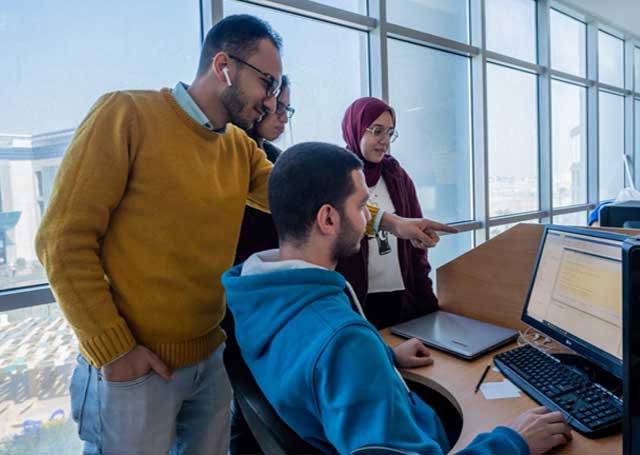Wireless Intelligent Networks Center (WINC)
Vision
To be recognized as the premier regional center for research, technology development and education in all aspects of wireless systems, networking, and applications.
Mission
To help build Egypt's, and the region's knowledge-based society and develop a critical mass of highly qualified and trained engineers in various ICT fields.
Research Tracks:
1. Wireless and Optical Networks
- Beyond 5G and 6G access and core networks
- Advances in M2M, WSN, and IoT networks
- Green wireless and optical networks
- Massive and Ultra-Massive MIMO
- AI/ML for wireless and optical networks
2. Internet of Things (IoT)
- Autonomous driving and V2X solutions
- ML/AI for autonomous systems optimization
- Facilitating AI/ML capabilities for IoT devices, robotics, and sensors
- Smart cities, smart grids, and smart homes
- Networks and services enabled by integrating IoT, NB-IoT, 5G/6G, and AI at the edge
3. Networking and Wireless Connection
- Cognitive network management
- Software-defined networking
- Network virtualization (Edge) and slicing
- AI/ML in service provisioning
- AI/ML aided network automation
- Fog and Edge Intelligence
4. Enabling Technologies
- 3D imaging and sensing with localization
- New transceiver architectures and computing paradigms
- Novel network architectures
- Blockchain technology in mobile networks
- Quantum Cryptography
5. Electromagnetic Metamaterials
- High-Performance Metasurfaces
- Nonreciprocal Metastructures
- Efficient CMOS compatible Mid-IR high performance structures

